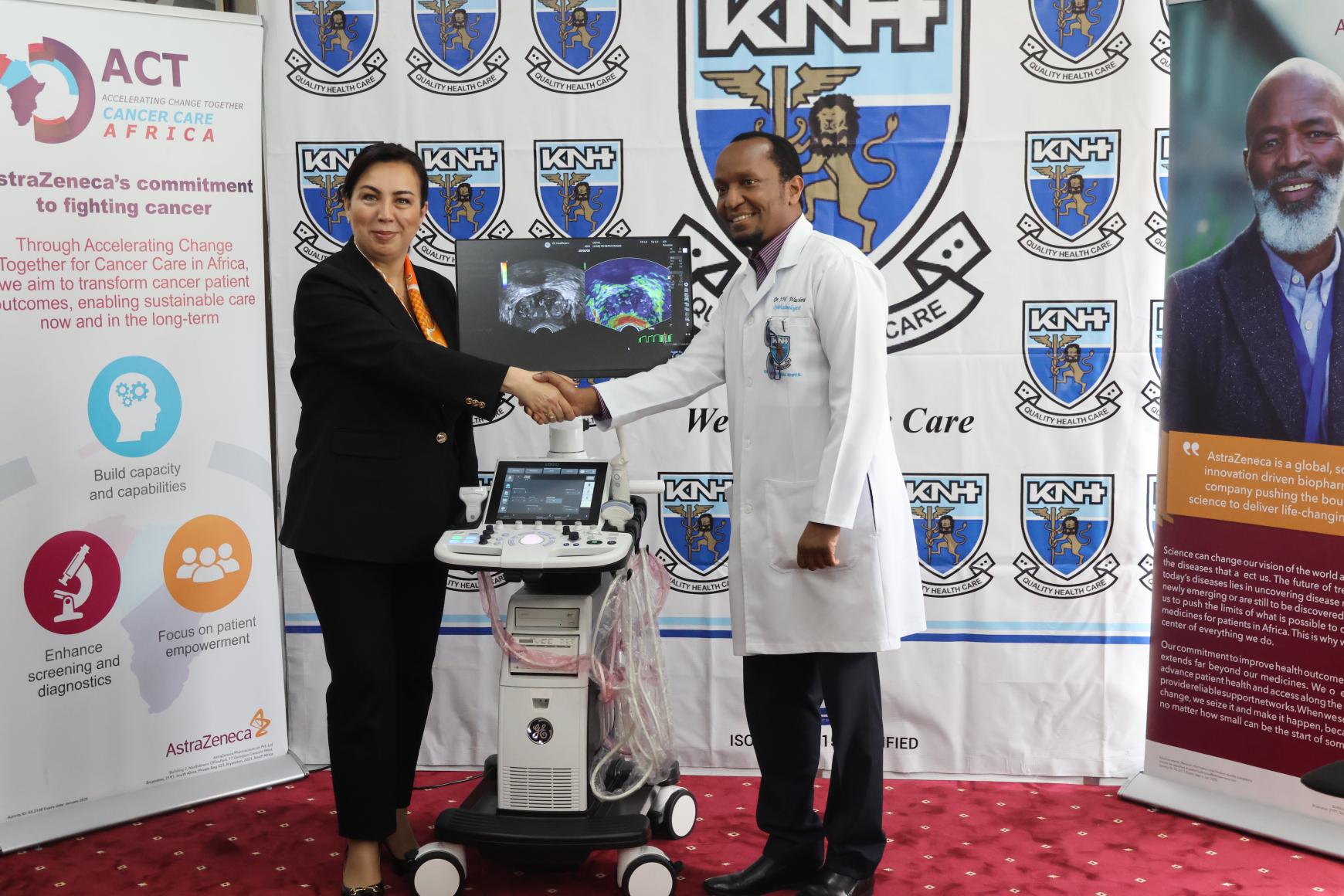AstraZeneca, has donated a state-of-the-art ultrasound biopsy machine to Kenyatta National Hospital.
“The introduction of this ultrasound biopsy machine represents a significant step forward in our ongoing efforts to enhance prostate cancer diagnosis. Early detection is crucial in improving treatment outcomes for patients. With this advanced equipment, we aim to reduce the number of late-stage diagnoses and provide more effective treatments to those under our care.” Stated Dr. Evanson Kamuri, CEO of Kenyatta National Hospital
Read more: British International Investment commits USD 26.5 million to AFEX to boost food security in Africa
Six other hospitals across Kenya will also receive ultrasound biopsy machines by the end of the year include Moi University Teaching & Referral Hospital (Eldoret), Kenyatta University Teaching, Referral & Research Hospital (Nairobi), Jaramogi Oginga Odinga Teaching & Referral Hospital (Kisumu), Coast General Teaching & Referral Hospital (Mombasa), Meru Teaching and Referral Hospital (Meru), and Kakamega County General Teaching and Referral Hospital (Kakamega).
In addition to the ultrasound biopsy machine, Kenyatta National Hospital will also receive 3-4 reusable biopsy guns and 10,000 specialist kits for diagnosing prostate cancer through a blood test.
The donation is part of a broader initiative aimed at equipping seven “centers of excellence” in hospitals across Kenya with cutting-edge diagnostic tools.
To do AstraZeneca has partnered with The National Cancer Institute of Kenya (NCI Kenya) and the Kenya Association of Urological Surgeons (KAUS) to improve access to early and accurate detection for prostate cancer patients in the country.
“Our partnership with the National Cancer Institute of Kenya and KAUS to address prostate cancer symbolizes our dedication to fighting the growing burden of cancer in Kenya. By improving equitable access to technology that enables early diagnosis, we aim to enhance patient outcomes and, in the process, transform cancer care on the continent,” Said Pelin Incesu, Area Vice President for the Middle East and Africa at AstraZeneca
The partnership aims to reduce the current scenario in Kenya which sees 80 percent of prostate cancer patients diagnosed with advanced disease stages and aggressive tumors.
The initiative was inaugurated at Kenyatta National Hospital and will serve as the cornerstone of AstraZeneca’s Cancer Care Africa program in Kenya.
Read more: Kenya to use NGAOs to advance the Bottom Up Transformation model
The program aims to enhance outcomes for individuals affected by cancer in Kenya and across the continent, regardless of their socio-economic or geographic background. With a focus on health equity through the adoption of cutting-edge health technologies, making cancer screening more accessible, even in remote and underserved communities.
As part of the partnership, NCI Kenya and KAUS will set the benchmark for prostate cancer practice and standards across counties, ensuring that each of the seven hospital centers improve in clinical care, research innovation, and capacity building.
Email your news TIPS to editor@thesharpdaily.com


















